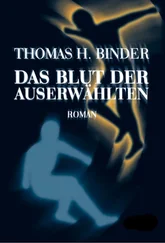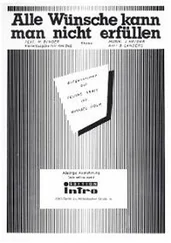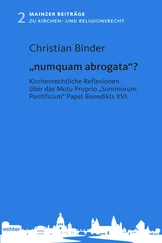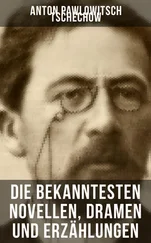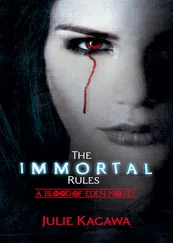Eando Binder - Anton York, Immortal
Здесь есть возможность читать онлайн «Eando Binder - Anton York, Immortal» весь текст электронной книги совершенно бесплатно (целиком полную версию без сокращений). В некоторых случаях можно слушать аудио, скачать через торрент в формате fb2 и присутствует краткое содержание. Год выпуска: 1965, Издательство: Belmont, Жанр: Фантастика и фэнтези, на английском языке. Описание произведения, (предисловие) а так же отзывы посетителей доступны на портале библиотеки ЛибКат.
- Название:Anton York, Immortal
- Автор:
- Издательство:Belmont
- Жанр:
- Год:1965
- ISBN:нет данных
- Рейтинг книги:5 / 5. Голосов: 1
-
Избранное:Добавить в избранное
- Отзывы:
-
Ваша оценка:
- 100
- 1
- 2
- 3
- 4
- 5
Anton York, Immortal: краткое содержание, описание и аннотация
Предлагаем к чтению аннотацию, описание, краткое содержание или предисловие (зависит от того, что написал сам автор книги «Anton York, Immortal»). Если вы не нашли необходимую информацию о книге — напишите в комментариях, мы постараемся отыскать её.
A science fiction classic!
Anton York, Immortal — читать онлайн бесплатно полную книгу (весь текст) целиком
Ниже представлен текст книги, разбитый по страницам. Система сохранения места последней прочитанной страницы, позволяет с удобством читать онлайн бесплатно книгу «Anton York, Immortal», без необходимости каждый раз заново искать на чём Вы остановились. Поставьте закладку, и сможете в любой момент перейти на страницу, на которой закончили чтение.
Интервал:
Закладка:
Eando Binder
ANTON YORK, IMMORTAL
CONQUEST OF LIFE
1
The latter half of the 19th Century was a period of scientific giants—Ramsay, Bequerel, Roentgen, Einstein and others—but history does not mention Matthew York.
While the chemists outdid nature with synthetic products, while the physicists toyed with the amazing electron and the mathematicians groped into eternal secrets of the cosmos, Matthew York searched for a great scientific arcanum.
A brain highly stimulated by chronic hyperthyroidism, pushed his investigations ahead in leaps and bounds, but it also burned him out before his time. Long years of intensive search and labour eventually crystallized into results.
Like a pilgrim who at last nears his Mecca, Matthew York knew, at the end, that his fingertips were at the door beyond which lay the secret. He knew at the same time, with resigned bitterness, that he would not live to open the door more than a crack.
“Give me ten more years!” he moaned to the Universe at large. “Ten paltry years, and I will give you back a thousand!”
But that was not to be, and Matthew York, like Columbus, was to die unknowing that he had reached the shores of a new land, though he had seen them in the distance.
At twenty-five, Anton York, the son of Matthew York, was tall, physically perfect, mentally alert, with a budding scientific career already launched. At thirty he was healthier, if possible, and deep in the intricacies of electromagnetic waves applied to destruction. He sought a weapon so deadly that its use would teach the utter futility of war.
For Anton York had been in the World War. His grim experiences in that inferno of hate had left festering scars on his sensitive mind. He searched with all the passion of a fanatic for a Jovian weapon that would either end civilization or bring it everlasting peace.
Gradually it became apparent to him that he must be singularly blessed with physical good health. At times he wondered vaguely about it. It was hardly natural. Long hours in the laboratory, weeks of intensive, mind-shattering labour failed to weaken his superb vitality.
At thirty-five he reached his prime, with not a day’s sickness behind him since childhood. It was as though some diligent guardian angel kept him free of the diseases that exacted their toll of all others around him. His researches had resulted in the development of a fused beam of ultrasound and gamma-rays—the long-sought goal.
Yet he did not reveal his discovery. It was too destructive, too likely to bring about chaos. He shelved it in utter secrecy, destroyed all recorded data, kept only the key formula in his mind for future use.
In conjunction with this ultra-weapon, he also developed a super-refractive alloy which he patented for a small fortune. Thereafter he did not have the annoyance of financial insufficiency to hinder his personal researches. He abandoned the academic duties that had previously earned him a livelihood, and settled himself in his own laboratory.
At forty-five he had not aged at all, it seemed. He married a young and beautiful girl of twenty-five, one who instinct told him would not hold him back in his scientific endeavours. They looked like a well matched couple of equal age, for York seemed possessed of that elastic youthfulness with which some people are so fortunately endowed. Yet at times he caught himself wondering whether it was fortune or something else.
Ten years of research on liquid and solid rocket fuels had convinced him space travel would not be achieved by that clumsy, wasteful means. The answer, if answer there was to be, lay in solving the secret of gravitation.
At fifty-five he had made some steps, purely theoretical, toward the solution, but realized it might take several lifetimes to reach the fundamental basis necessary for an enduring analysis. He was like Anaxagoras, who had conceived an atomic theory, two thousand years before mankind had had a science capable of testing it.
“Vera,” he said to his wife one day as she brought sandwiches to him in his experimental laboratory, “gravitation is like a planetary hypnotism, just as amazingly effective, and just as intangible. Just what it is I haven’t yet determined, not even in theory. As far as I’ve gone, it seems to be a directive field of attraction between masses of matter. By directive, I mean radiating from points, rather than just filling space haphazardly, like the cosmic rays. Now there’s a strong clue—”
Vera interrupted him. “Yes, dear, but drink your coffee before it gets cold.”
“Vera, that clue is a will-o’—the-wisp I’ve been chasing down for ten years without success,” he persisted. “It is very likely to take ten more tens of years. If only I had another lifetime ahead of me.
“To look at you, you have.” His wife was not merely flattering him. Her voice was serious, vaguely troubled. “I’m just thirty-five, and that’s the age you look, yet you are fifty-five.”
“I know, I know,” murmured York, without elation.
“If it keeps up,” Vera’s voice wavered, “I’ll be looking older than you in a few more years. Everybody comments on your youth, dear. They even call you a Dorian Grey—only in looks, of course, not character. Why, Tony, what—”
York had dropped his sandwich, fingers nerveless. His face was pale.
“If it keeps up!” he cried, repeating his wife’s phrase. “If it keeps up,”
“Tony, I don’t understand.”
“Neither do I,” York told her earnestly. “Vera, I haven’t spoken much about my childhood, but there’s one thing that has haunted my subconscious mind like a vivid dream—the night when my father inoculated me with a solution that made me very ill for a month. It was a glowing liquid, that solution, as if a diamond had been dissolved in it. He called it an Elixir.”
York’s eyes grew misty with past memories.
“My father was a great scientist, greater than the world ever knew. He set himself a goal—the secret of life. He did strange things with mice and fruit flies, with his serum. Once he dipped some inoculated mice into a bath of deadly germ-laden fluid. The creatures lived on, undiseased.”
He sprang up.
“In the name of God, what did his serum do to me? Why should I alone be free of disease? Why do I look like thirty-five at the age of fifty-five? What does it mean? I must find out!”
“Find out, but how?” ventured his wife. She was always awed by her husband’s immunity to disease and senility, but she had trained herself to ignore the subject.
“From my father’s diary perhaps, or from his research notes. My aunt still has his papers. I’ve neglected to make a careful study of his notes. Now I’m going to make a thorough search for some clue to the mystery!”
2
BUT it was not just a clue that York found as he meticulously examined Matthew York’s voluminous data. It was the keystone of his quest itself. The entry in his father’s diary for the day Anton York remembered so vividly, read in part:
Although it was against my better judgment, some madness seized me this night, and I injected 10 c.c. of a 50% water solution of the Elixir (leaf 88A, book G-4) into Tony’s left arm. I don’t know what the result will be. God! I just don’t know. No use to curse myself any more. It’s done and only the future can give answer. In about six months, blood tests of Anton will indicate to what extent the Elixir has taken effect. Its cruder form, when it didn’t kill my guinea-pigs, gave the sign of total disease resistance within that period. So in a half year Tony will either carry blood of high radiogenic capacity, or he will be dead. Dear God, not the latter! One thing I cannot get out of my mind is that my Elixir has connections with longevity.
Читать дальшеИнтервал:
Закладка:
Похожие книги на «Anton York, Immortal»
Представляем Вашему вниманию похожие книги на «Anton York, Immortal» списком для выбора. Мы отобрали схожую по названию и смыслу литературу в надежде предоставить читателям больше вариантов отыскать новые, интересные, ещё непрочитанные произведения.
Обсуждение, отзывы о книге «Anton York, Immortal» и просто собственные мнения читателей. Оставьте ваши комментарии, напишите, что Вы думаете о произведении, его смысле или главных героях. Укажите что конкретно понравилось, а что нет, и почему Вы так считаете.
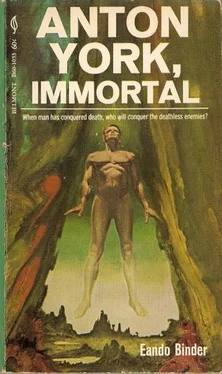
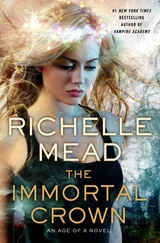
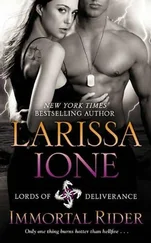

![Линси Сэндс - Meant to Be Immortal [calibre]](/books/384309/linsi-sends-meant-to-be-immortal-calibre-thumb.webp)
